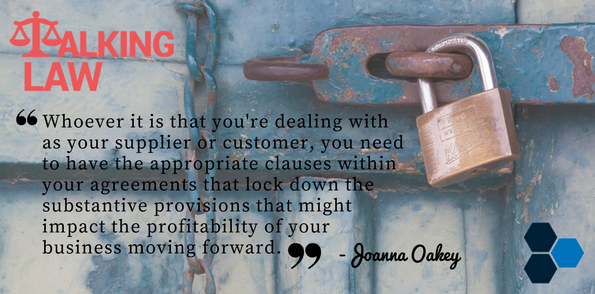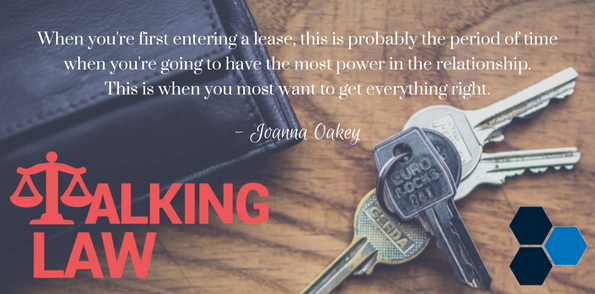
The fashion world was taken by surprise a few weeks ago when major retailer, Rhodes and Beckett and their sister chain Herringbone closed their doors. Tune in to this week’s episode as we take a look at the lessons to be learnt from the collapse of this upmarket label and share some tips on how you can apply these to your business, regardless of whether your industry is construction or couture.
Episode Highlights:
01:11 Setting the background
02:19 Costs and Overheads
02:54 Danger in related party transactions
05:37 Locking down variations
06:03 Reining in debtors
06:47 Unfavourable store leases
07:11 Negotiating with landlords
09:48 Internal disputes
11:39 Risks for the director who stayed on
17:37 Unfair dismissal
21:25 Quick Summary
Today we’re talking about an interesting news story that I’ve recently seen that I thought would be really interesting to investigate in relation to the collapse of the retail chains Rhodes & Beckett and Herringbone. It caught my eye not just because it’s a favourite brand of my husband, but also and mostly because in one single example it highlights a range of legal issues that are extremely important for businesses and management within businesses to be aware of and on top of.
Setting the Background
Rhodes & Beckett is an up-market men’s wear retailer founded in 2006. This year, just before the collapse, together with its sister company Herringbone, it has 29 stores, forty million dollars in annual sales and ran about 140 staff. It seems that there were many reasons for the collapse. Reasons cited were high overheads, unfavourable store leases, and legacy issues. These legacy issues appear to include some murky shareholder disputes arising after a sale by the founder of part of the shares. Let’s take a look at each of these areas one by one and examine what lessons there are for businesses to learn from in the Rhodes & Beckett collapse story.
Costs and Overheads
There are some special issues in this particular case but the general issue of costs and overheads impacts all businesses. The first thing for businesses and management within businesses to understand is the costs that play a factor in the profitability of the business. Locking them down as much as possible is extremely important and one of the ways you can do this is through tough and strong clauses in supplier agreements to protect a business from increases into the future.

Danger in related party transactions
One of the issues that appears to have played out in this case of Rhodes & Beckett is supply costs that related to supplies that they were receiving from one of their shareholders and the head company of their business. This is often an issue in businesses where there are related party transactions. Where the business has a supplier or a customer that is somehow related to parts of the owners of the business or parts of the management of a business, it’s really important for all parties to have costs locked down and clear from the start.
Often what happens in transactions that aren’t third party or arms-length is we often forget to include the detail that we would normally include if we were dealing with third party or arms-length suppliers or customers. The important thing to remember is whoever it is that you’re dealing with as your suppliers or your customers you need to have the appropriate clauses within your agreements that lock down the substantive provisions that might impact your profitability or the profitability of the business moving forward. In supplier agreements, the way of locking this down is protecting the business from increases.
Having really clear clauses about how costing and payment is arrived at, how costing and payment will change from year to year. Usually, there will be a provision for there to be increase in future years. But it’s really important that you look carefully at how that increase is discussed because I’ve seen in many agreements over time where increase clauses are hidden in the fine print within an agreement.
If people aren’t clearly reviewing these contracts before they’re signing it, they can miss the annual review clauses that allow the party that they’re dealing with to increase costs each year or each particular period of time by a certain amount. Keep your eye on the costing clauses (how costs are calculated), the payment clauses (when payments are due), increase clauses and variations.
This can often happen where you have a particular supply relationship that you then become dependent on. And often this can appear say for example in software type development or licensing arrangements where if the customer then requires a variation (so they require something to be added on into the future), they can often be at the mercy of their suppliers in relation to how much that will cost.
Locking down variations
The other important factor is, wherever possible, to try and lock down the way variations will be dealt with. If you become locked into a supply for a particular time either contractually (because you’re bound to a contract for a particular period) or commercially (because really it becomes too hard for you to then replace the supplier or replace the supply quickly), you should ensure that you have locked down that variation concept.
Reining in debtors
The Linking issue for many businesses, perhaps not so much retail but other businesses outside of retail, is keeping on top of debtors. Keeping a really tight rein on anyone who owes the business money, ensuring that that doesn’t get out of hand because if you have high overheads and you’re not keeping on top of your debtors and/or you have a tight profit margin, you’ll find that slowing cash flow related to slow paying debtors can often cripple a business and leave it in the situation of Rhodes & Beckett and Herringbone where they are facing the concept of liquidation if a buyer for the business isn’t found.
Unfavourable store leases
I think this is a really important issue for businesses to be mindful of if they are dealing with a landlord (if they don’t own the business premises themselves and/or if location is particularly important to the business).
Negotiating with landlords
Often I see the situation where businesses fail to understand how negotiable landlords often can be when they are first seeking a tenant and even sometimes when we get up to an optional renewal period. The important thing to understand when you’re first entering into a lease is this is probably the period of time when you’re going to have the most power in the relationship. This is when you most want to get everything right.
You want to negotiate as hard as possible so that you are getting the best deal you can possibly get in this situation. It’s also important at that stage to understand what the variables are and understand what you can negotiate over and above simply the rent. There are other areas that might be important to your business in relation to the obligations of the landlord to you or limiting your obligations to the landlord.
It might be important for you to consider how rent adjustments are going to take place in the future (rental increases). Almost all leases will include a provision for the increase in rent over time so it is important for you to understand how much that will be and how that compares to the market at the time that you’re negotiating. It’s also important for you to understand outgoings, how they can be calculated and increased over time.
Wherever possible, you want to ensure you’re not being stung by increases and increasing outgoings by fixing the increases and fixing the calculation of the outgoings or in some cases you might also be able to have outgoings included in your total rent expense so that it’s not a separate expense for you that acts as a variable. Obviously, understanding the terms of your lease and what you’re required during the lease period at the end of the lease period is important. And then finally, the term of the lease (how long are you able to negotiate for this lease).

If you’re looking to sell your business into the future, it’s also great to come back to this as a point of renegotiating your lease and getting a full new lease term together with a new series of options before you sell your business or start a sale process. If location is important to your business, you have that value for the future locked in for a buyer coming in which can impact greatly the value of the business in the minds of the heads of a buyer that’s coming in.
Internal disputes
This area is a far deeper and murkier area than the other two areas we’ve talked about which is internal disputes. Some sources are now reporting that a dispute being played out in the background was a factor in the collapse of Rhodes & Beckett. To understand this better, we need to delve further into the history of Rhodes & Beckett.
As I said Rhodes and Beckett was founded in 2006 by its founder Nelson Mair. In 2012, approximately six years later, he sold 80 percent of the business to a German luxury goods company van Laack.
Bear in mind that this sale occurred (for whatever reason) as a sale of part of the business rather than a full sale (i.e. the retention by the original owner of a 20 percent stake in the business, a minority stake). What can often happen in this situation is that issues can occur in the future because the original business owner has lost full control of the business that he had built.
Risks for the director who stayed on
It’s important to understand for businesses who are selling that if they decide to retain equity in the business, bringing in a new owner or a new party can often create issues with the equilibrium of how the management and progression of the company had worked. This is especially true if they have been used to running a ship or running a ship together with a particular set of people, more so if you’re bringing on board someone who would then take over control.
This is an important lesson for all businesses, not just businesses that are looking at selling an equity stake in the business, but businesses that are also looking to bring on board partners, whether or not that be partners within the business from an equity perspective or partners that they’re joint venturing with into the future and the sorts of issues that can occur at any time when new business partners or joint venture partners are brought on board.
In this particular case, this all started to unfold by last year – 2015 when founder Nelson Mair took van Laack, the 80 percent major shareholder, to court alleging unfair dismissal and oppression of minorities. Essentially, this means that he felt that there were things and decisions being made in the business that were completely outside of his control and to his detriment.
There were hearings in the Victorian Supreme Court in 2015 and 2016 where Mr. Mair alleged that van Laack had been artificially reducing earnings of Rhodes & Beckett and its sister chain Herringbone through transfer pricing by charging the Australian retailers a premium for fabric that they sourced through its Singapore subsidiary. Mr. Mair alleged that there were surcharges being applied of between 20 to 40 percent for fabric that was made in Vietnam and China which he said pushed up the cost of their goods and therefore reduced the profitability in Australia.
The issues with this go back to one of the issues that I was talking about earlier which is locking in cost through supplier agreements. In this case it looks like the supplier agreements weren’t locked in to the extent that they should have been in this case because of the surcharges that were being added on top of the cost of the fabric that was purchased by the Australian Rhodes & Beckett business.
This played out for Mr. Mair in two areas. Firstly, he had a shareholders agreement where the German company was required to pay him on the basis of profits and earnings in the company. Mr. Mair then claimed that van Laack manipulated the accounts particularly by this increase in the cost price of the fabrics that were coming into Australia that had then the effect of reducing the gross profits and increasing the costs which then created negative profits and thereby afforded them the ability to avoid paying him the true value of his stake in the business.
The other issue that he highlighted was their decision to use cheaper Chinese fabrics rather than the better quality Italian fabrics it traditionally had used which absolutely shows an issue playing out here of decisions that had been made by the founder that were being impacted by the new shareholder or that could be made by new JV Partners and it really demonstrates the issues and the critical issues in locking down decision making and how decisions are made within an organization.
This points back to a number of learnings for all of us. One of the learnings is in locking down agreements like our shareholders agreements or JV agreements any agreements where we’re entering into an arrangement with a partner, business partner that relates to how the business will be conducted. Whether it’s a JV arrangement or arrangements in relation to the internal running’s of a particular business it’s very important to lock down decision making. Who will make decisions? Who gets to participate in those decisions? And what if there is a dispute? How will you provide the opportunity for the parties to deal with the issues before they turn into a legal dispute?
Obviously, in this case one of the issues was the minority stake that the founder held a 20 percent stake. But this sort of issue can be protected within shareholder agreements. If you’ve got the right clause and you’re able to negotiate the right clause in shareholder agreements, even if you hold a minority interest, you can still have your interests protected.
But perhaps another area that this points back to then is the decisions that were made in the share sale process way back in 2012 and of Mair’s decision to sell only 80 percent of the business rather than all of the business.
Whatever the reasons were for that at the time, by retaining a state moving forward there were always going to be big risks for the founder who stayed on. Often it’s better in these situations to have a clean break. But if there’s no clean break and not a full sale and a business owner does decide to stay with the business, then I think an important thing to bear in mind is that you need to have clauses that deal with what will happen if the parties don’t agree moving forward so that there’s a path for how everyone can separate amicably without having to resort to litigation because obviously litigation only adds to costs.
In this case, while litigation was going on in the background the businesses collapsed. So whether or not it caused the collapse, certainly I’m sure it could have been a helpful factor in assisting the businesses move trade out of any of the issues that they were suffering in the business.
Unfair dismissal
The final issue was a claim for unfair dismissal that was made by the founder in relation to him being terminated his employment being terminated by the company in March 2015. This is the sort of thing once again that is important to businesses both in terms of businesses that are considering a sale and considering how they would be employed by the business in a continuing basis and the importance of making sure they have protections against the new purchaser of the business terminating their employment.
It’s also important to bear in mind for businesses just in relation to General Staff issues from an unfair dismissal perspective because unfair dismissal claims can often unfortunately be a common risk for businesses. Businesses need to make sure they have the structure in place supporting any decisions that they’re making in relation to the termination of an employee. It’s important that they understand what the elements are that might be argued by an employee in an unfair dismissal case and ensure that they have both the systems and the documentation to back up the fairness of the dismissal.
Obviously this can be a confusing area so wherever you are confused, feel free to contact one of our lawyers through our site talkinglaw.com.au and you’ll be able to be put in contact with one of our lawyers who can explain further the risks relating to the area of unfair dismissals.
And then the very final area that I wanted to talk about in relation to this case is that it appeared that Mr. Mair, the founder, had been dismissed or had resigned, whatever the courts decide at the end of the day in April 2015. But he didn’t actually resign as the director of Herringbone and Rhodes & Beckett until late January 2017. That’s almost two years as a period of time between the time that he resigned as managing director and that he then resigned as a director along with all of the obligations that directors have in relation to a business.

One of the issues here (I don’t know the answer to this) is whether or not he had strong and close involvement with the business over this period of time whilst he remained a director of the business. But it’s an issue for anyone who holds a position of as director of a business in which they might be having a dispute with other people who are also part of the board or beneficial ownership of the business. Holding the position of a director is a very important responsibility and comes with obligations as well as risks. When a business is having trading issues and you don’t have control or enough information as a director in relation to those issues because relationships have broken down, you’re putting yourself in a very dangerous situation. If the company is failing to make certain payments or is making decisions that are dangerous, that can potentially impact you personally and they can sometimes big personal liability that might arise out of that. It’s certainly something to bear in mind for any of our listeners who either are directors themselves or advise people who are directors of organizations.
Quick Summary
That’s my quick overview of the Rhodes & Beckett collapse and how it might be relevant to all businesses. As a quick summary of the things that we talked about:
- 1. High overheads and locking down clauses within supplier agreements to protect your business from increases
- 2. Unfavourable store leases and ways in which organizations can protect themselves where premises are important or location is important
- 3. Internal disputes behind the Rhodes & Beckett’s story
- 4. Lessons for businesses that are looking at selling or purchasing in the future, especially if the sale or purchase does not relate to the full equity in the business
If you’d like more information about any of these topics head over to our website at talkinglaw.com.au today. There will have a free download of all of the things that I talked about today. In this case study of Rhodes & Beckett and also on that website you can download some other information resources that might be relevant for you and see other podcasts that we’ve talked about that have similar topics as the ones talked about today. More so you’ll find details of how to contact our lawyers at Aspect Legal if you’d like help with any of these items that we covered today. And finally if you enjoyed what you heard today please pop over to tunes and leave us a review. We’d really appreciate it. Thanks again for listening in. See you next time at Talking Law!














